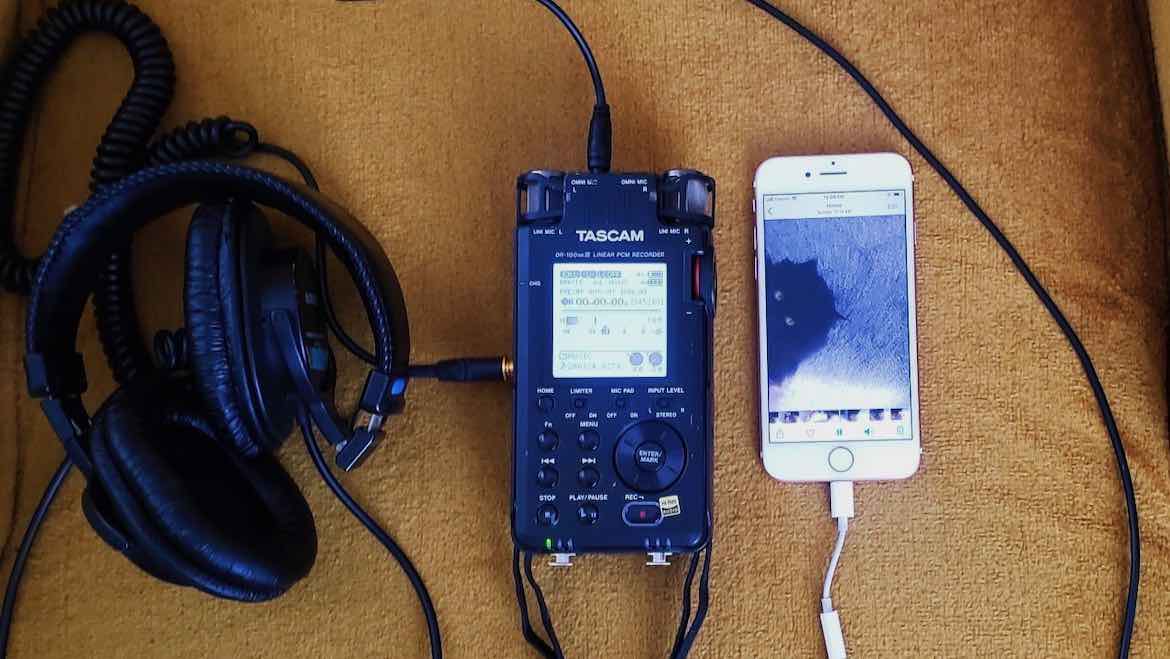WDET apologizes for fundraising spots simulating tape decay
Update (9/25/12): An outside consultant determined that WDET did not violate fundraising ethics during its campaign.
Detroit’s WDET admitted in an August letter to donors that it used suspect advertising tactics in on-air fundraising spots promoting an ambitious music-restoration campaign.
Listeners of WDET July 26–28 may have heard solicitations for the station’s Digital Music Campaign, a large-scale effort to catalog and preserve the thousands of uncategorized recordings in WDET’s music library. For 10 of its on-air spots, the station presented clips from archived recordings that were edited to sound as if they were in advanced stages of decay, without indicating to listeners that the decay was simulated.
After anonymous staffers raised concerns about the spots with station owner Wayne State University, WDET General Manager J. Mikel Ellcessor, who had approved them for air, mailed letters of apology Aug. 3 to all donors who had given to the station since the beginning of the campaign. Ellcessor wrote that the ads “could be construed as misleading” and offered listeners the chance to rescind their donations to the station. He sent a similarly worded explanatory letter to WDET staff.
The spot in question demonstrated the aural effects of digital audio tape (DAT) decay, which over time will affect the many recordings stored on DATs in WDET’s non–climate-controlled library. “We have many rare performances in our library archived on media that is obsolete and decaying,” the voiceover announcer said in the spot. “These tapes need to be preserved and re-mastered for future enjoyment. For example, here’s the tape of the Black Keys recorded live in the WDET studios in 2004.”
A fuzzy clip is heard, with digital skips and a muddied quality.
“Okay, so this is what digital preservation sounds like,” the announcer said, followed by a crystal-clear, much louder clip from a different part of the song.
This template was repeated with the other nine spots, which used the same copy but recordings by different artists. The audio distress spots were only a small part of the on-air campaign; others featured pitches from staff members and national personalities such as John Hockenberry and Michel Martin.
Ellcessor, who joined WDET in December 2008, told Current he did not regard the spots as deceptive because they were not meant to be interpreted as a literal before-and-after transition.
Ellcessor doesn’t know when the complaint was filed, but it wasn’t brought to his attention until the on-air campaign had ended. Wayne State University spokesperson Matt Lockwood told Current that the university was treating all information regarding the tip as anonymous.
Accounts conflict over how many WDET staffers were involved in the complaints. Ellcessor wrote in both versions of the letter that multiple staffers complained, though both he and Lockwood told Current that only one staffer complained.
“WDET places the highest premium on integrity, and would never knowingly implement a program that would in any way mislead a donor,” Ellcessor wrote in the letters. In writing to donors, he added, “I believe it is critical we respond to these concerns as soon as possible.”
Despite approving the spots, Ellcessor said his view on their appropriateness is ultimately immaterial. “It’s donor-centric behavior. The donor is the only thing that matters,” he told Current. None of the donors withdrew their gifts, he said.
The on-air campaign focused primarily on bringing attention to the project rather than raising a target sum of money — if a substantial number of people pledged, a stronger case could be made to philanthropists and major donors. Approximately 150 station supporters donated during the campaign. WDET raised $40,000 during the period, but Lockwood could not say how much of the money went to the digital music project, explaining that station donations are not coded by purpose.
WDET plans to pitch the digital archive project to prospective investors, but will consult with CFREs (Certified Fund Raising Executives) outside of WDET to “ask for a line judge call” on its practices, Ellcessor said.
Meanwhile, the music decays a little more each day in the library.
“I’ve already sent 150 letters with my signature at the bottom out into the world. This is public. I’ve got nothing to hide here,” Ellcessor said. “Whatever’s happened around that is not bigger than the importance of preserving this music.”
WDET couldn’t provide an estimate of the digital music project’s full cost, as its full scope hasn’t been defined, but the station is emphasizing the campaign’s special significance for a city with a musical history as rich as Detroit’s. Never-released recordings from the White Stripes, as well as many other musical artists both native to Detroit and not, are stored haphazardly in WDET’s vaults.
“None of the usual conventions you apply in maintaining an archive have been applied to this content,” Ellcessor said. “One-hundred percent, the library is at risk. It absolutely, over time, will be lost if we don’t capture and transfer it.”





